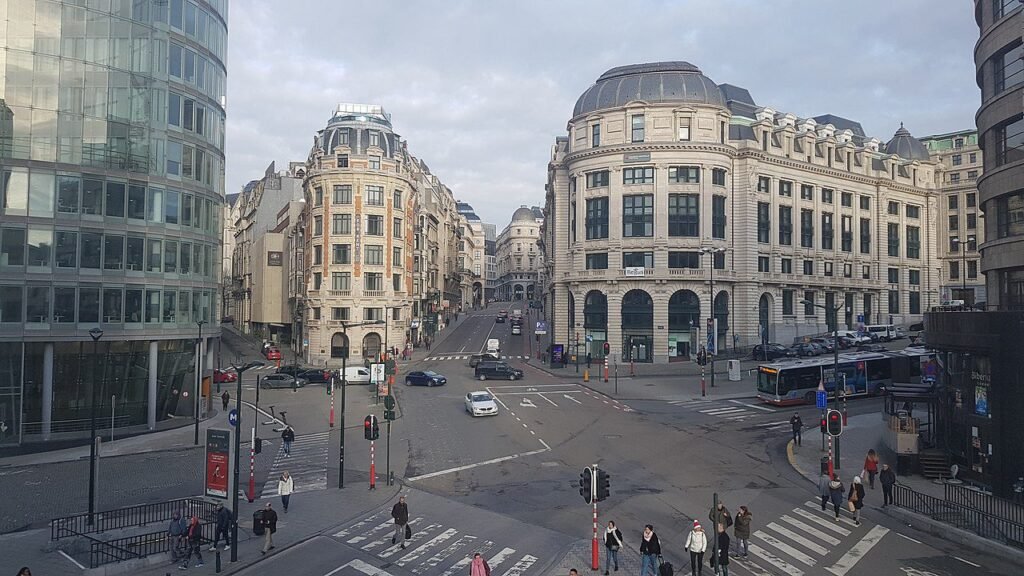Brussels: Under the European Green Deal, the financial system has an important role to play in supporting the long-term transition to sustainable development in general and especially the transition to climate neutrality by 2050. Or, as Commissioner Valdis Dombrovskis puts it, “As the EU economy transitions towards carbon neutrality, it is vital that banks can identify and manage sustainability risks and absorb financial losses that arise from them”.
Therefore, supervisors as well as legislators have been very engaged in gathering relevant information and input from stakeholders in order to establish harmonised and uniform rules particularly regarding environmental, social and governance (ESG) risks. Following the EBA’s report on management and supervision of ESG metrics for credit institutions and investment firms in June 2021 (for further information, see also our FRQ on this report) and the European Commission’s Sustainable Finance Strategy in July 2021, the Commission now has adopted legislative proposals for a review of the EU banking rules, i.e. the Capital Requirements Regulation (CRR) and the Capital Requirements Directive (CRD). On July 14, the European Commission released a package of proposals to meet the EU’s climate, energy, transport, and tax goals by at least 55% below 1990 levels by 2030. It is critical for Europe to be the world’s first climate-neutral continent by 2050 in order to make the European Green Deal a reality.
To summarize the content of this article, the following points can be proposed:
1) CRR III and CRD VI are expected to further increase the potential fine exposure of institutions for ESG misbehaviour. Therefore, institutions should make sure they have appropriate governance structures in place;
2) The requirements regarding disclosure on the holdings of green investments could give rise to substantial additional reporting efforts. However, the EBA is expected to develop uniform disclosure formats.
3) The legislative proposals foresee time for banks and supervisors to properly implement the reform in their processes, systems and practices.
4) We expect that CRR III and CRD VI will finalize by 2023 at the latest. In order to benefit from a possible transitional period, institutions should start adjusting their actual processes and practices from now on.
In conclusion, it can be stated that the ESG changes in CRR III and CRD VI will have an impact on all European institutions. Institutions should take adequate measures and give due attention to these reforms asap.
Click here to view original web page at www.lexology.com

ESG: The New Way of Doing Business in Brussels
Business and organizational sustainability is a complex issue inBrussels, with many stakeholders and perspectives. It’s also an area where the stakes are high – if we don’t get it right, there will be dire consequences for our communities and the planet.
The good news is that more investors are taking notice of ESG issues when they invest in Brussels companies and organizations. In fact, over the past decade, institutional investors have been increasingly incorporating Environmental, Social, and Governance factors into their investment decisions. And soon it will be impossible to win any RFPs without it.
We want everyone (not just big institutions inBrussels) to be able to incorporate ESG-related risk into their actions because Companies that don’t adapt to these changes will not survive. This change has many companies inBrussels scrambling to figure out how they can stay competitive and profitable while also contributing to a better future.
ESG The Report is one solution that helps businesses inBrussels find their niche in this new landscape by providing information on risks and opportunities related to environmental, social, and governance factors affecting them today. Our report offers insights into what investors are looking for from companies inBrussels and around the globe.
ESG Frameworks provide investors with insight into how companies are performing in terms of corporate governance, social issues, labor standards, and environmental impact. Ask about our ESG Frameworks package to help you get started on making your company, department, or organization diverse, equitable, and inclusive for all stakeholders.

Dean Emerick is a curator on sustainability issues with ESG The Report, an online resource for SMEs and Investment professionals focusing on ESG principles. Their primary goal is to help middle-market companies automate Impact Reporting with ESG Software. Leveraging the power of AI, machine learning, and AWS to transition to a sustainable business model. Serving clients in the United States, Canada, UK, Europe, and the global community. If you want to get started, don’t forget to Get the Checklist! ✅
